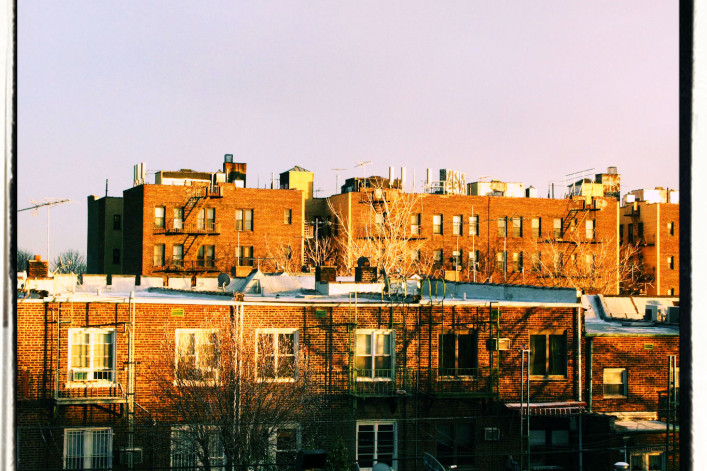How one Queens renter outsmarted a landlord trying to deregulate his apartment
There are about one million rent-stabilized units in NYC—as well as plenty of landlords who would love the opportunity to deregulate and rent their apartments at higher rates. Housing courts have been fielding more complaints of tenant harassment than ever, as Crain's reports, and to combat this, the city has established legal measures to keep landlords from pressuring tenants in regulated units to leave. It still happens, though: We spoke to one rent-stabilized tenant who dealt with repeated requests from landlords who were eager to give him the boot, deregulate their building, and sell.
Here's how he prevailed, in his own words (as told to Brick Underground):
I’ve been in my apartment, a two-bedroom, since May 2009. I had a roommate for a while, but it’s been just me since May 2015. My landlords are a married couple, and the woman usually would come over each month to collect the rent. Last November, she texted to ask if I was planning to move out any time soon. I said no, and she wrote back and said, "You have to get out because we want to move our family members in."
They’d previously let it slip that my apartment was rent-stabilized. One year, they sent along the renewal with a notice that said they were required by law, since the apartment is stabilized, to offer me a renewal and up my rent by two percent. I hadn’t known it was stabilized before that.
When they asked me to leave, at first I thought I was screwed. I started researching and I read that in certain cases, moving in family members could be a reason to kick out a rent-stabilized tenant: You can do it if you actually have family to move in and they plan to live there for three years. And if they don’t use the unit that way, and the owner is caught, they risk not being able to raise the rent in the building at all for another three years. (These regulations are outlined in this fact sheet from the state’s department of Homes and Community Renewal.)
So I learned that, and we didn’t talk about it much until the landlord came to pick up the rent. She always picks it up in person, in cash. That’s another reason why when this started happening I thought, I’m good—they probably don’t want any trouble.
Then she said, “We’ll give you three months before you have to leave,” as though they were doing me a favor. Their big buyout offer was, “We’ll give you your security deposit back, no questions asked, and we’ll give you one month’s rent back.” This is before I knew about buyouts. But then I read articles about it that explained if landlords do want to kick out a tenant, they might offer them something like $20,000 to leave (see Brick’s guide to negotiating buyouts for more information).
The reason landlords want to buy tenants out at that point is that there are still people in one or two units that are stabilized. And once the building is de-stabilized, they can sell the building for a couple hundred thousand dollars more than they could before. In my case, they are trying to destabilize the whole building and sell it.
They went with the "family moving in" story for a few months, but by then I knew that in order to kick me out, they’d have to give me a formal written notice three months before my lease was scheduled to end. (As this Brick guide to rent stabilization details, landlords must offer a renewal—or a reason they are not renewing—90 to 150 days before your lease expires; if they don’t, the terms of the expired lease still apply to you, and your rent can’t be raised until the landlord provides a new one.) My lease is up in October, so they should have given me notice that summer, and they had already missed their window.
My neighbors later talked to our super and he told them what the landlords were really up to: trying to deregulate the building and sell it. Then sometime in January, the landlords told me, "We’re not moving family in." But they still acted as if the deal was that I was going to move out at some point. They would say, "What if you moved out in three months?" I told them I wasn't going to move out. But they kept on trying, and didn’t up their offer. I brought up buyouts, and she said, "Oh, we can’t afford that." They can sell their building now if they want to and they’ll make a profit, but they want extra profit. And it’s like, if you want me to get that for you by leaving, I should get some of that, too.
Meanwhile, my neighbor made a formal complaint to the DHCR, and the landlords were contacted by them. They started sending nasty texts to my neighbor; they were annoyed that we were talking to each other about the situation. They’re really bad at trying to get one over on us. That probably had something to do with the fact that they finally just gave up.
Eventually they said to me, "So you wanted a lease, right? You want a renewal?" And I said yes. And she said, "Okay, it can start October 2015, like when it was supposed to start, and it can be for one year." And I said that I actually wanted a two-year lease. She texted back, "Please don’t make us write up a new renewal because we already drafted it with our lawyer."
I was thinking, these are just boilerplate forms, there’s nothing to it. You don’t need to draft it with a lawyer. So I just filled out a two-year lease form and gave it back to them. With the current decision from the Rent Guidelines Board, two-year leases universally have a rent increase of two percent, so I just added that. From what I’ve read, once a landlord is late giving you the renewal form, then it’s your choice as a tenant to either have the new lease start when it’s supposed to or right when you got it. I put the start date as October 2015; again, we’re already past the window of when they’d have to notify me to move out.
If they come to me in July 2017 with the same claim that they’re moving family in, then they can legally get me out, but they need a formal legal notice 90 days before the lease ends. And if that happens, I could check back and see if there’s really family there and if there isn’t, report them. Meanwhile, they can get out of this anytime—they can still sell the building and make money.
**This story first ran on July 8, 2016.**
You Might Also Like





























